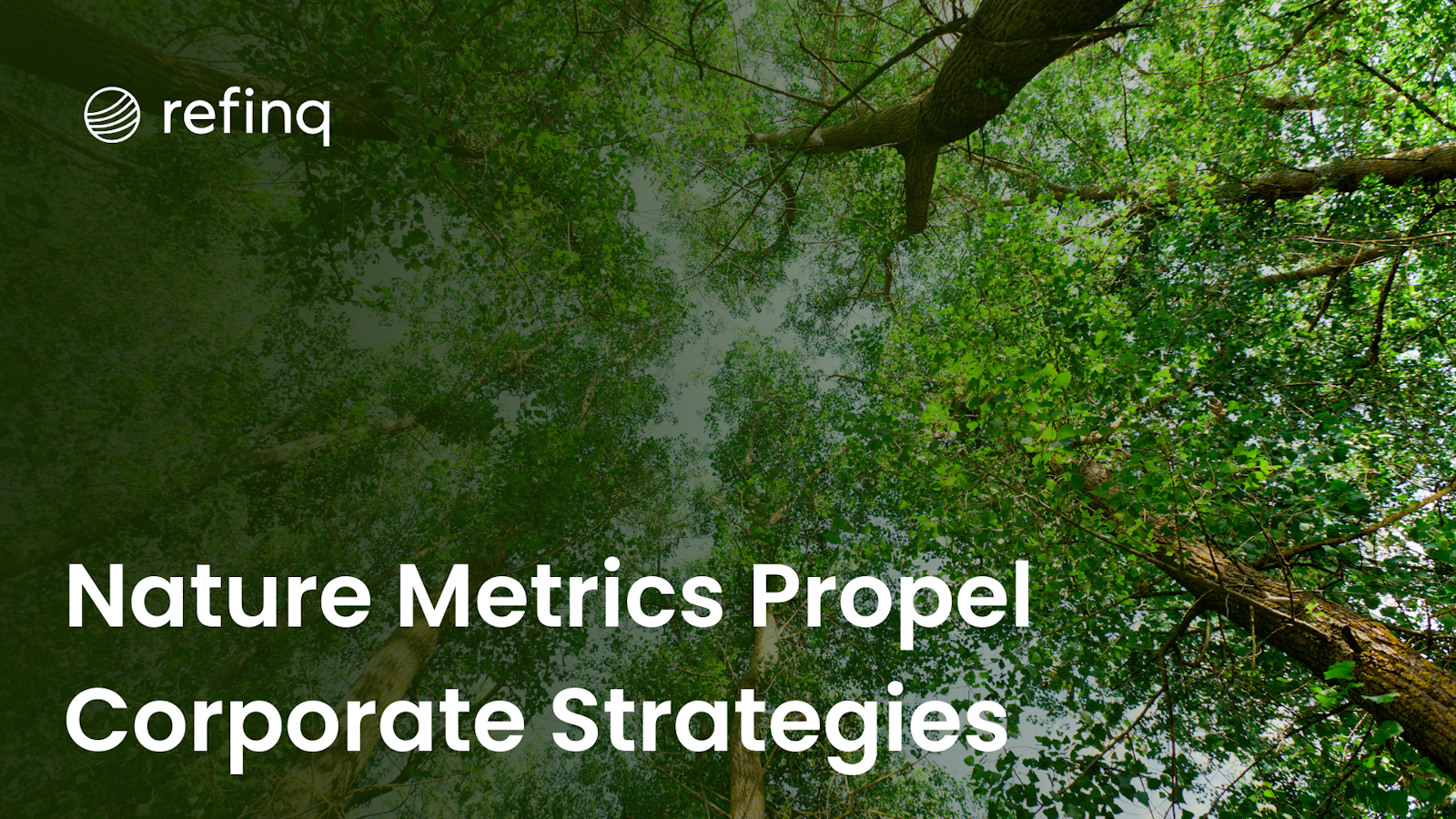

The integration of nature metrics into corporate strategies is becoming essential as businesses recognize the financial and environmental risks of biodiversity loss. These metrics help companies measure and manage their impact on ecosystems, ensuring sustainability and resilience in an increasingly eco-conscious marketplace. Tools like Refinq are leading the way by providing actionable insights through advanced climate and biodiversity risk assessments.
Businesses worldwide are turning to standardized frameworks to align with international sustainability goals. The World Business Council for Sustainable Development (WBCSD) emphasizes harmonizing nature metrics to improve corporate accountability and accelerate progress toward nature-positive outcomes.
Nature metrics are quantitative and qualitative measures that evaluate the health of ecosystems, biodiversity, and natural resources affected by corporate activities. They are used to:
Assess Biodiversity Impact: Evaluate how business operations impact local and global ecosystems.
Monitor Ecosystem Services: Track changes in water, soil, and air quality.
Guide Nature-Positive Goals: Set measurable targets for reducing environmental harm.
For example, initiatives like the Accounting for Nature framework help companies calculate ecosystem conditions, fostering better corporate decision-making.
Improving Accountability: Metrics allow businesses to track their environmental performance transparently.
Mitigating Financial Risks: Aligning with frameworks like the Taskforce on Nature-related Financial Disclosures (TNFD) reduces exposure to environmental risks.
Driving Innovation: Companies can leverage metrics to invest in sustainable practices, such as renewable energy and ecosystem restoration.
Stakeholders increasingly demand greater accountability for environmental impacts. By using nature metrics, corporations demonstrate their commitment to sustainability and align with stakeholder priorities.
To ensure meaningful outcomes, companies must:
Identify Relevant Indicators: Focus on metrics aligned with their industry and geographic impact.
Incorporate Tools Like refinq: refinq’s footprinting solutions offer detailed analyses of biodiversity risks, guiding corporate strategies effectively.
Advanced platforms like Refinq utilize machine learning and geospatial analysis to provide granular insights into climate and biodiversity risks. These insights empower businesses to prioritize nature-positive actions.
Harmonizing metrics is crucial for comparability across industries. Initiatives like the WBCSD and the NatureMetrics ecosystem condition framework drive consistency in measurement, making it easier for businesses to benchmark and improve.
refinq empowers businesses to integrate nature metrics seamlessly. The platform’s key features include:
Granular Data Integration: Processing over 2.5 billion data points to create detailed environmental profiles.
Future-Proof Decision-Making: Providing forecasts for four climate scenarios up to 2100.
Regulatory Compliance: Aligning with standards like TNFD and CSRD, ensuring businesses meet global sustainability expectations.
By leveraging refinq’s portfolio impact assessments, companies can evaluate and reduce their biodiversity footprint, supporting both environmental and financial goals.
Nature metrics are not just tools for compliance but catalysts for innovation and sustainable growth. By integrating these metrics, companies can lead in the transition toward a nature-positive economy. Tools like refinq provide the data and insights needed to make informed decisions, reducing risks and unlocking new opportunities.
Harmonizing the Use of Nature Metrics by Corporations (WBCSD)
Aligning Nature Metrics for Business Accountability (Nature Positive)
Corporate Action on Nature Loss: Key Trends (Embedding Project)
Leveraging TNFD Metrics for Nature Risks and Opportunities (IRIS Carbon)